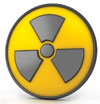sierraclub.org - sierra magazine - may/june 2012 - up to speed
 Russian scientists drill through 12,360 feet of ice in Antarctica to reach Lake Vostok, a body of water the size of Lake Ontario that has been covered with ice for 15 million years.
Russian scientists drill through 12,360 feet of ice in Antarctica to reach Lake Vostok, a body of water the size of Lake Ontario that has been covered with ice for 15 million years.
Midwest Generation announces that the Fisk and Crawford coal-fired power plants in Chicago, among the country's oldest and dirtiest, will close by 2014.
 The EPA forbids cruise ships and other large oceangoing vessels from dumping sewage within three miles of the California coast.
The EPA forbids cruise ships and other large oceangoing vessels from dumping sewage within three miles of the California coast.
TransCanada bypasses a review by the State Department and announces that it will build the southern leg of its proposed Keystone XL pipeline. Instead of dirty oil from the tar sands of Alberta, Canada, the shorter pipeline will carry oil from Cushing, Oklahoma, to refineries on the Gulf Coast in Texas.
The Interior Department bans uranium mining for 20 years on more than a million acres of public land surrounding Grand Canyon National Park.
Mexico's most severe drought in history leaves 2 million people in the north-central part of the country without water or hope of it until the next rainy season—if it comes.
 The United States becomes the first country to establish catch limits for every variety of fish it manages—46 in all—in hopes of rebuilding depleted stocks.
The United States becomes the first country to establish catch limits for every variety of fish it manages—46 in all—in hopes of rebuilding depleted stocks.
Satellite measurements indicate that from 2003 to 2010, Earth lost 1,000 cubic miles of ice, enough to cover the United States in a foot and a half of water.
 In the United States, the winter of 2011-2012 is the fourth warmest in recorded history; in Europe, bitter cold kills more than 650. Both phenomena may be linked to the loss of summer sea ice in the Arctic.
In the United States, the winter of 2011-2012 is the fourth warmest in recorded history; in Europe, bitter cold kills more than 650. Both phenomena may be linked to the loss of summer sea ice in the Arctic.
 The world's largest offshore wind farm, with more than 100 turbines producing 367 megawatts, opens off the coast of Cumbria, England. In time for the Olympics, it's expected to be eclipsed by the mammoth London Array, with 175 turbines producing 1,000 MW.
The world's largest offshore wind farm, with more than 100 turbines producing 367 megawatts, opens off the coast of Cumbria, England. In time for the Olympics, it's expected to be eclipsed by the mammoth London Array, with 175 turbines producing 1,000 MW.
Warmer sea temperatures are extending the oxygen-less "dead zones" in the world's oceans, causing sea life to squeeze into narrower corridors to avoid suffocation.
An inquiry into the Fukushima Daiichi triple meltdown finds that Japanese officials considered mass evacuations from the region—including of staff from nearby nuclear plants. Such an evacuation could have led to a worst-case "demonic chain reaction" of plant meltdowns, perhaps leading to the evacuation of Tokyo.
 The Nuclear Regulatory Commission grants licenses to the Southern Company to add two new nuclear reactors to its facility near Waynesboro, Georgia. If built, they would make the plant the largest nuclear facility in the country.
The Nuclear Regulatory Commission grants licenses to the Southern Company to add two new nuclear reactors to its facility near Waynesboro, Georgia. If built, they would make the plant the largest nuclear facility in the country.
Carbon dioxide in the atmosphere is acidifying the world's oceans faster than at any time in the last 300 million years.
 "The Senator," a beloved 3,500-year-old, 125-foot bald cypress in Florida's Big Tree Park, is destroyed in a fire set by a woman smoking meth inside its hollow trunk. Authorities quote her as saying, "I can't believe I burned down a tree older than Jesus." —Paul Rauber
"The Senator," a beloved 3,500-year-old, 125-foot bald cypress in Florida's Big Tree Park, is destroyed in a fire set by a woman smoking meth inside its hollow trunk. Authorities quote her as saying, "I can't believe I burned down a tree older than Jesus." —Paul Rauber
This article has been corrected.
Photos: iStockphoto/mammamaart (drill bit), iStockphoto/stevegraham (ship), iStockphoto/Spinkle (sign), iStockphoto/edfuentesg (ice cube), iStockphoto/enot-poloskun (turbine), iStockphoto/asbe (radiation symbol), AP Photo/Phelan M. Ebenhack (tree)